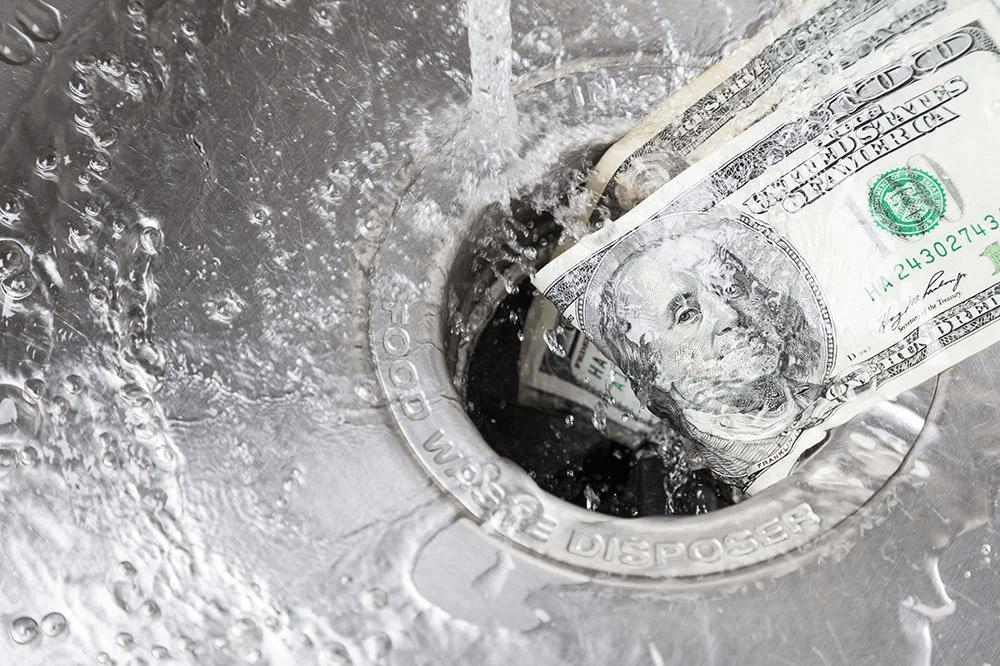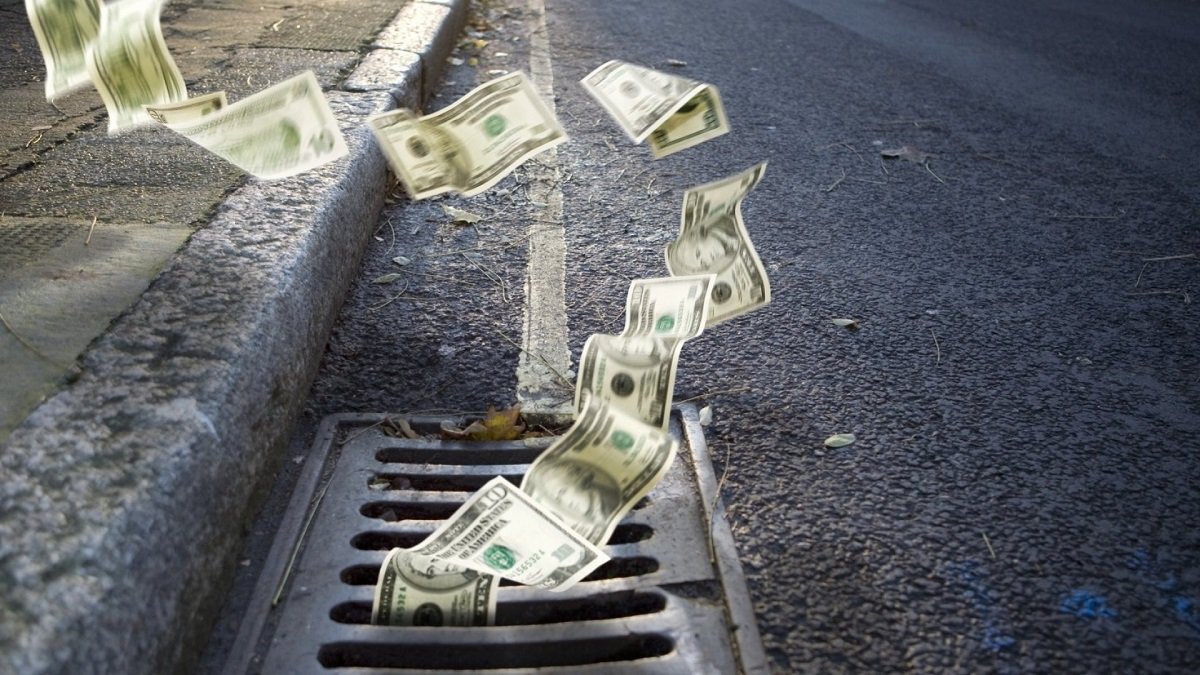Worried about your finances and biggest money drains? You are not alone yourself. If you’re like most individuals, you’re starting to feel more and more squeezed as each month goes by. It is now even more crucial to monitor where your money is going because of the ongoing growth in inflation.
You may become more conscious of your spending and make necessary changes, even if certain aspects are beyond your control, such as constantly growing expenditures. Looking for strategies to conserve money is useful when you’re in a difficult economic situation since every dollar matters.
Top Money Drains & Ways To Avoid Them

1. Dining Out Frequently
Eating out can be convenient and enjoyable, but the costs can add up quickly, and one of the biggest money drains. A single meal at a restaurant can easily surpass the price of a week’s worth of groceries. This trend is exacerbated by impulse decisions and the allure of convenience.
How To Avoid It:
- Meal Prep: Plan your meals for the week and cook in bulk. This saves time and money.
- Set a Budget: Allocate a specific amount for dining out each month and stick to it.
- Limit Frequency: Designate one or two days a week for dining out instead of making it a habit.
2. Impulse Buying
Impulse purchases are often driven by emotions and can lead to significant financial losses. Whether it’s a pair of shoes you didn’t need or the latest gadget, these purchases can derail your budget.
How To Avoid It:
- Wait 24 Hours: Before making a non-essential purchase, wait a day. This cooling off period can help you reconsider the necessity.
- Use a Shopping List: Stick to a list when shopping to avoid buying items you didn’t intend to purchase.
- Unsubscribe from Marketing Emails: Limit exposure to sales promotions that can tempt you to buy.
3. Subscription Services
While subscription services like streaming platforms and meal kits can be convenient, they can also be among the money draining habits to avoid. Many people subscribe to multiple services and forget about them, resulting in unused memberships.
How To Avoid It:
- Audit Your Subscriptions: Review all your subscriptions and cancel any that you don’t use regularly.
- Opt for Annual Plans: If you use a service consistently, consider an annual plan, which is often cheaper than monthly payments.
- Set Reminders: Use reminders to reassess your subscriptions every few months.
4. Unused Gym Memberships
Many individuals sign up for gym memberships with the best intentions but fail to use them consistently. This results in wasted money and can lead to feelings of guilt and frustration.
How To Avoid It:
- Choose Pay-Per-Use: Consider paying for individual classes or using a pay-as-you-go model instead of committing to long-term membership.
- Find Activities You Enjoy: Engage in physical activities you love, whether it’s hiking, biking, or home workouts, to avoid the need for a gym.
- Trial Memberships: Take advantage of trial periods to assess if a gym aligns with your lifestyle before committing.
5. High-Interest Debt
Carrying high-interest debt, such as credit card balances, can be one of the biggest money drains. Interest can accumulate rapidly, making it challenging to pay off the principal.
How To Avoid It:
- Pay Off Balances Quickly: Aim to pay off your credit card balance in full each month to avoid interest.
- Consider Debt Consolidation: Look into consolidating high-interest debts into a lower-interest loan.
- Create a Repayment Plan: Use the snowball or avalanche method to systematically pay down debts.
6. Car Expenses
Owning and maintaining a car comes with various costs, including insurance, fuel, maintenance, and depreciation. These expenses can significantly impact your budget.
How To Avoid It:
- Evaluate Your Transportation Needs: Consider public transportation, biking, or carpooling as alternatives to owning a vehicle.
- Regular Maintenance: Keep up with routine maintenance to avoid costly repairs down the line.
- Shop for Insurance: Compare rates from different providers to find the best insurance deal.
7. Energy Costs
High energy bills can result from inefficient appliances, poor insulation, and excessive usage. These costs can creep up over time, impacting your overall budget.
How To Avoid It:
- Conduct an Energy Audit: Identify areas where you can improve efficiency, such as sealing windows and doors or upgrading appliances.
- Use Smart Thermostats: Consider investing in smart thermostats that optimize energy usage based on your schedule.
- Turn Off Devices: Unplug electronics when not in use to prevent phantom energy drain.
8. Not Taking Advantage of Employer Benefits
Many employees overlook the valuable benefits provided by their employers, such as retirement plans, health savings accounts, and tuition reimbursement. Failing to utilize these resources can result in lost savings and opportunities and is one of the money draining habits to avoid.
How To Avoid It:
- Review Your Benefits Package: Take time to understand your employer’s benefits and how you can maximize them.
- Contribute to Retirement Plans: If available, contribute enough to take full advantage of any employer match in retirement accounts.
- Participate in Wellness Programs: Utilize employer-sponsored wellness initiatives that may offer financial incentives for participation.
9. Failing to Budget
A lack of budgeting can lead to overspending and financial instability. Without a clear plan, it’s easy to lose track of expenses and income, resulting in financial chaos.
How To Avoid It:
- Create a Monthly Budget: Track income and expenses to develop a comprehensive budget that reflects your financial goals.
- Use Budgeting Apps: Consider utilizing budgeting tools and apps to help monitor your spending and stay accountable.
- Review and Adjust Regularly: Regularly review your budget to make necessary adjustments and ensure you stay on track.
Wrapping Up
Even if there are circumstances beyond your control, it’s a good idea to make an effort to manage your money. If nothing else, assess your current situation and make a sensible financial strategy. It’s conceivable that you are at a loss for what to do. Nothing additional is included in your budget. Nothing can be cut, and you are unsure about the biggest money drains.
However, there are a few things that are changeable for a lot of individuals. Perhaps you’re overpaying. Thus, be sincere with yourself. Examine the statements on your credit cards. Establish a reasonable spending plan. Make an effort to follow it. If not—which is the case for most people—give yourself a break and try again. Additionally, do your research before making significant life decisions like purchasing a property.
Lastly, attempt, if you can, to prioritize setting aside a portion of your earnings. Even if you may not have much money right now, perhaps things will get better. Adopt a growth-oriented mindset. Continue trying.
FAQ
Q: Why Do Credit Cards Cause Issues?
A: Using credit cards excessively might make financial problems worse. Although it could provide a temporary fix, the long-term effects—like paying high interest rates and accruing debt—can result in a vicious cycle of financial strain. Financial strain has the potential to worsen, resulting in future cost increases that will make it more difficult to catch up.
Q: When Is It Not Appropriate to Use Home Equity?
A: Whether via a home equity line of credit (HELOC) or refinancing, using home equity like a piggy bank may have unfavorable effects. Access to cash may be facilitated by it, but interest payments and debt accumulation are the consequences.
Q: Why Is It So Important to Have a Clear Financial Plan?
A: To ensure a secure and profitable financial future, it is important to have a well-defined financial strategy. Having a detailed strategy helps in goal setting. It also motivates you to handle financial uncertainty and make prudent financial decisions. Your financial plan acts as a guide for managing your money, including budgeting, investing, saving, and getting ready for big life events like college, retirement, and homeownership.












I am extremely inspired along with your writing talents and also with the structure to your blog.
Is this a paid topic or did you modify it your self?
Either way stay up the excellent high quality writing,
it is uncommon to peer a nice blog like this one nowadays.
Thank you so much for the kind words! I customized it myself—I’m glad you like it! I really appreciate your support!